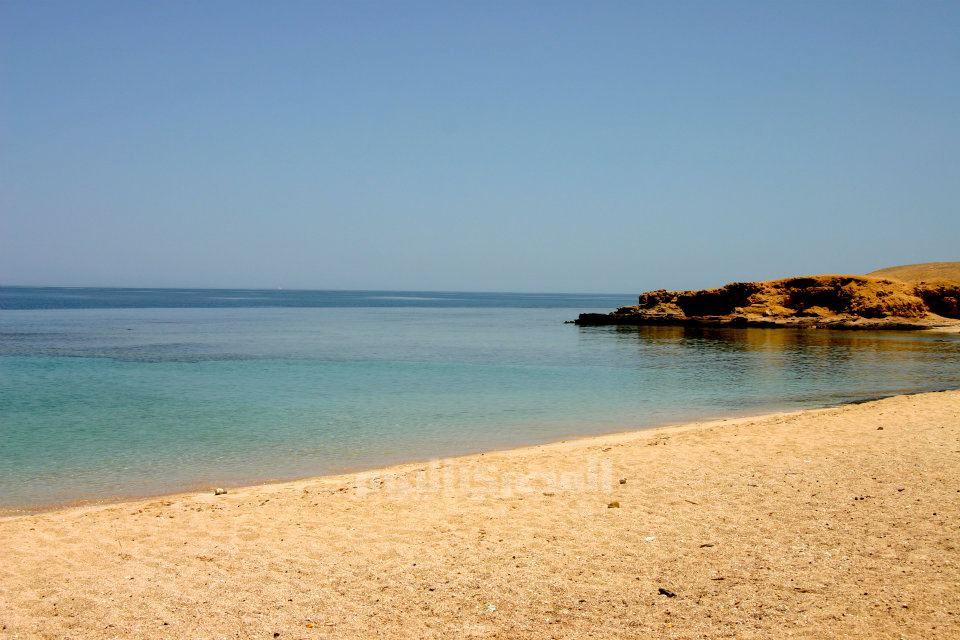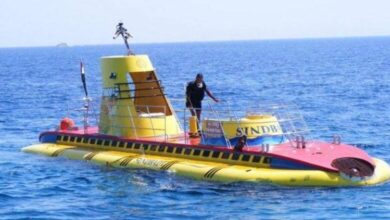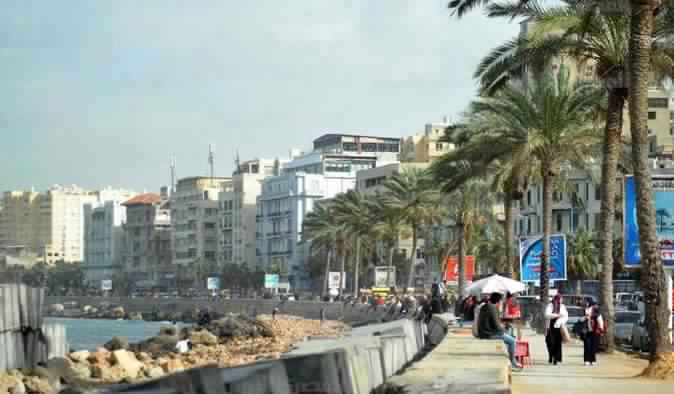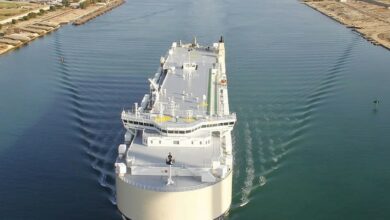
The shrinking Dead Sea may be topped off with water from the Red Sea, under a controversial 2005 World Bank project.
Environmental and rights groups say there are significant adverse effects of transporting water from one salt-filled sea to the other, with even the bank's internal inspection panel acknowledging that there are "legitimate concerns" about the long-planned project.
"There will be a chemical reaction," said Gidon Bromberg, Israeli director of EcoPeace/Friends of the Earth Middle East, a coalition group of Jordanian, Israeli and Palestinian environmentalists that has been vocal in its criticism of the plan since it was first set forward in 2005.
The reaction caused by mixing the two waters, Bromberg said, will produce a calcium compound that will change the color of the historic Dead Sea.
He said the project will turn the sea a whiter color, cause it to reflect light and heat, and lead to increased temperatures in the surrounding area, which will have effects on the surrounding ecology, including some rare species that make their homes in the unique environment.
The circulation of water in the Gulf of Aqaba, the planned departure point for the water, would also cause a change in water temperature there, an area with highly sensitive coral ecosystems.
The optimistically named "peace conduit" plan to replenish the waning Dead Sea with Red Sea water was first put forth in 2005, when the Israeli, Jordanian and Palestinian Authority governments came together at the World Economic Forum and talked about solutions for the draining Dead Sea.
Since then, Bromberg's group and others have continually expressed their disapproval of the scheme, saying it is a poorly designed Band-Aid for a much greater problem.
"It doesn't deal with the root causes, firstly the waters that have been taken away from the Jordan River," he said.
Agricultural industries in Syria, Jordan and Israel all siphon water from the river, which used to replenish the Dead Sea. In addition, chemical companies sanctioned by the Jordanian and Israeli governments harvest the rich chemical wealth of the sea using inefficient and outdated drying techniques.
Before taking water from the neighboring Red Sea, Bromberg said "We should look at challenging these policies."
By some estimates, the Dead Sea has lost 14 cubic kilometers of water in the last 30 years; most say its shoreline recedes by about a meter a year. It's a dire situation, according to the World Bank, and the solution could lie in the nearby Red Sea. The official project website says that scientists and politicians have looked to the Red Sea as a new source of water since the area was first industrialized in the first half of the 20th century.
“This is a big idea to address a big problem, namely the dying of the Dead Sea,” Alex McPhail, study manager for the World Bank, said in a 2010 press release, amid increasing criticism.
“The World Bank is supporting the governments of Jordan and Israel and the Palestinian Authority in an ongoing investigation into the very complex science, engineering and economics that would underpin any such undertaking,” he said.
In 2011, two Palestinian organizations, Stop the Wall campaign and the Palestinian Farmers Union, in addition to the Global Initiative for Economic, Social and Cultural Rights, an international human rights NGO, filed a complaint with the bank's internal inspection panel saying that in addition to the environmental dangers, the project is slanted to benefit Israeli, not Palestinian land and water use.
“The bank’s refusal to seriously examine alternatives that restore the water flow of the Jordan River, and that can support the existence and persistence of the Jordan Valley communities in the area, invariably plays into the hands of Israeli attempts to forcibly expel them in order to illegally annex the valley and to colonize it with its settlers,” Jamal Juma of the Stop the Wall campaign told the Bretton Woods Project, a World Bank and International Monetary Fund watchdog.
In March, the World Bank denied the environmental and activist groups' requests that an investigation be conducted into the plan before the first stages of the project begin.
The bank's own inspection panel wrote in a report that it “did not recommend an investigation of whether the Bank has complied with its operational policies and procedures related to the Study Program because of certain unique and special circumstances and uncertainties at this stage.”
However, it added, that the groups “are raising legitimate concerns, such as potential adverse environmental effects on the Dead Sea, potential adverse effects on sources of water for the population in the West Bank, and the issue of legitimizing current off-take of water in the Jordan River Basin and from the Dead Sea.”
Since March, there has been no news on how, or whether, the bank is going forward with the project. The bank has invested approximately US$16 million in conducting a feasibility study, but after five years, it has yet to issue a final report or conclusion.
Now, Bromberg fears that governments are in secretive and non-transparent discussions with the bank. He said his group has consulted with Egyptian officials at the country’s embassy in Tel Aviv, who have been seeking more information about the project.
“We're very worried about everything being negotiated behind closed doors, and then the World Bank coming out with an announcement that everything is fine and plans are going forward,” he said.




